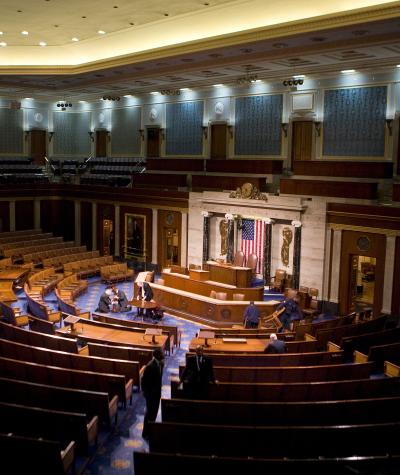When the new Congress is sworn in on January 3, its members must immediately vote to decide whether they want to be subject to effective ethics enforcement by the Office of Congressional Ethics (OCE).
The OCE serves an essential role in democracy by providing independent, nonpartisan oversight of the House of Representatives, safeguarding it against corruption and holding members accountable for ethics violations.
Despite its importance, the OCE must be reauthorized every two years or it will disappear.
This backward incentive structure opens the door for efforts to dismantle the OCE. Unlike previous years, however, there has not yet been an expressed threat to weaken the OCE at the beginning of the 119th Congress, possibly because the House had to publicly walk back their efforts to get rid of the OCE at the beginning of the last Trump administration.
In 2017, there was an attempt to sneak a provision to gut the OCE into the House rules package, but constituents were strongly opposed to this and even then-President Trump publicly stated he thought it was a bad idea. We hope Congress learned their lesson and will not threaten the OCE again.
Despite opposition from those who want less accountability and oversight, it is clear that the OCE has been a marked success. It has operated effectively and efficiently as a nonpartisan office over the last 15 years, investigating Democrats and Republicans at nearly the exact same rate, even referring the same number of Democrats and Republicans to the House Ethics Committee for further review.
The OCE has also succeeded in its goal of making House ethics enforcement more transparent. Public reports have been produced in 45% of OCE investigations compared to 4% handled by the Senate Ethics Committee, which does not benefit from assistance from an independent body like the OCE.
These reports are integral to providing the public with information they have a right to know about their elected officials.
This information allows the public to make informed decisions about who they want to represent them in Congress, and who they may want to support in future political endeavors.
We see the importance of this in the recent controversy surrounding former Rep. Matt Gaetz (R-FL) and the House Ethics Committee’s original reluctance to release their report about his alleged unethical conduct.
The fact that it took a closed-door meeting for the House Ethics Committee to decide to release the report after a previous vote failed is another indication that the OCE’s independent, nonpartisan makeup allows it to prioritize transparency in a way that is difficult for partisan politicians to replicate.
Given the OCE’s effectiveness, we hope the 119th Congress not only refrains from weakening independent ethics enforcement but codifies the OCE into law, doing away with the need to advocate for its existence every two years and making it a permanent fixture in the House of Representatives.
Congress should also create a Senate equivalent and strengthen these independent offices by allowing both bodies to subpoena third parties and publish real-time information on legislators who refuse to cooperate with investigations.

